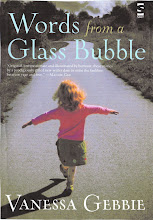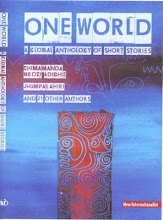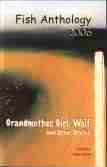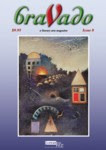Some clarity, and really helpful clarity, on the issue of 'patronising' the characters, and by extension, the reader. More emails.. and again, Im thanking this colleague.
It seems to come down to a fine difference between the way I write some characters but not others. And it is very interesting. As I said before... this is magic feedback. And I was just a wee bit off beam supposing it was anything to do with writing characters who differ from me as a person!
My colleague went into some detail about the portrayal of some characters whose head I seemed to be in 100%, so that the work was organic. And then others who I was less engaged with, it seemed, where there was a sort of distance between me and them, and therefore, the impression is that I am slightly 'outside' them, and showing them somewhat deliberately to the reader.
A few lines were quoted, places where characters are introduced in a direct way by the writer. (I am Miguel or Who is Harry?).
I now understand more, and he's right... its a sort of authorial 'intrusion', which in the hands of a real humdinger of a writer (I love that word!) would be far more successful!
Or...would it? is any authorial intrusion successful?
Hmph. You see, I love reading stories where the writer is talking to ME. Addressing me directly, making me part of the play that's unfolding. When I was a kid I used to go 'all goosey' when I came across something like, "and then what do you think happened, dear reader...?"
Oh I loved being the writer's 'dear reader!'
Wasn't I a nerd. Still am.
So it is a subtle thing, and one that has something to do with style preference, but which also does point up an interesting and fine craft issue.
Thursday, 14 August 2008
Subscribe to:
Post Comments (Atom)




.JPG)























3 comments:
My first real experience of 'author intrusion', if you want to use that term, was 'The Neverending Story'. As you say, making you complicit in the action - and I was totally blown away by it. And that sort of line, as in Jane Eyre, 'Reader, I married him'... it DOES work to make the reader part of the unfolding drama. Isn't it an aspect of metafiction?
I'm not sure I'm happy with the term 'author intrusion' anyway because it's contextual, means different things to different people. In beginner's fiction for instance, there will be pov slips which imply author intrusion, or instances of rhetoric which clearly emanate from the author in response to narrative goings-on. But do appeals to the reader really come under the same banner?
'Who is Harry?' IS a direct appeal to the reader, but does it stand as author intrusion? I don't think it does. It's metafiction, drawing attention for a second to the workings of fiction, the relationship between writer and reader, but then taking the reader into character, and thence story. Done well, it works, there's no question.
When I write, (sheesh, okay, when I USED to write... ach!) I found I loved my characters. They grew FROM me, were aspects of me. So I find that notion of being patronising difficult, an insult almost. It implies an assumption on the part of your 'colleague' which I'm not sure I understand.
Zoe
Ah yes, done well, it works. I am grateful to hear when a reader doesn't find something works, and is willing to say why, and analyse and try to explain what it was.
Maybe it is a stylistic preference, but also, maybe it is something else...something that I can look out for when editing.
I dont mind in the slightest... if anything, this sort of feedback is more welcome sometimes than the other sort, innit!!
This is interesting, because I am drawn a lot right now to writing stories which use the "you" form, as in "I said...." and "you said"... which could also be seen as some kind of "author intrusion", or at least makes the reader, perhaps, aware of the author. I like this, but I have been told by some readers that they find it very irritating. So it seems to me that it comes down to reader preferences - as the act of reading always does. All I can say is, if we win the reader over at the beginning of a story, they will follow us to the ends of the earth, but if we put them off, that's it. I am loathe to generalise about anything to do with writing, I like, as Zoe says, types of metafiction which make you aware you are reading something "unnatural", as all fiction is. That's my personal taste. I say again, good writing is good writing. Not everyone will love it, and that, too, is good!
Post a Comment